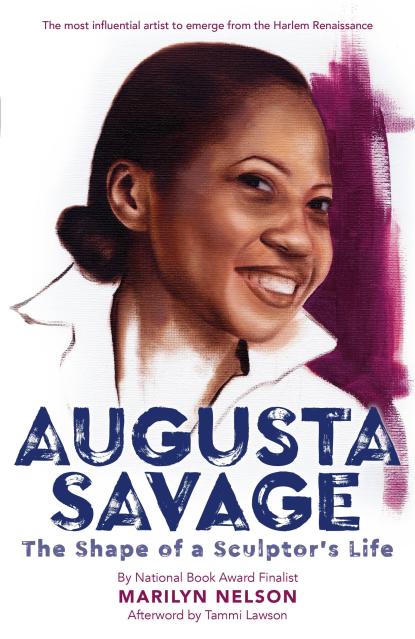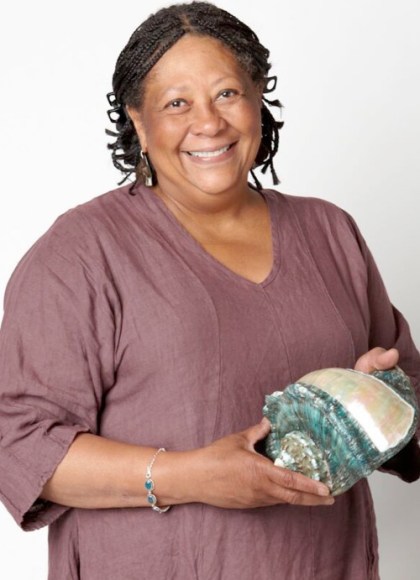By clicking “Accept,” you agree to the use of cookies and similar technologies on your device as set forth in our Cookie Policy and our Privacy Policy. Please note that certain cookies are essential for this website to function properly and do not require user consent to be deployed.
Augusta Savage
The Shape of a Sculptor's Life
Contributors
Formats and Prices
- On Sale
- Jan 25, 2022
- Page Count
- 128 pages
- Publisher
- Christy Ottaviano Books
- ISBN-13
- 9780316298223
Price
$10.99Price
$13.99 CADFormat
Format:
- ebook $10.99 $13.99 CAD
- Hardcover $18.99 $24.99 CAD
- Audiobook Download (Unabridged) $14.99
This item is a preorder. Your payment method will be charged immediately, and the product is expected to ship on or around January 25, 2022. This date is subject to change due to shipping delays beyond our control.
Buy from Other Retailers:
A Claudia Lewis Award Winner for Poetry by the Bank Street College of Education
A Black Caucus ALA Children & Young Adult Award Winner
A CCBC Children’s Choice • A CBC Teacher Favorite
Augusta Savage was arguably the most influential American artist of the 1930s. A gifted sculptor, Savage was commissioned to create a portrait bust of W.E.B. Du Bois for the New York Public Library. She flourished during the Harlem Renaissance, and became a teacher to an entire generation of African American artists, including Jacob Lawrence, and would go on to be nationally recognized as one of the featured artists at the 1939 World’s Fair. She was the first-ever recorded Black gallerist. After being denied an artists’ fellowship abroad on the basis of race, Augusta Savage worked to advance equal rights in the arts. And yet popular history has forgotten her name.
Deftly written and brimming with photographs of Savage’s stunning sculpture, this is an important portrait of an exceptional artist who, despite the limitations she faced, was compelled to forge a life through art and creativity.
Features an afterword by the curator of the Art & Artifacts Division of the Schomburg Center for Research in Black Culture.
NAMED ONE OF THE BEST BOOKS OF THE YEAR BY Horn Book • Kirkus Reviews • School Library Journal • Bank Street College
★ "A stunning portrait of artistic genius and Black history in America." —Booklist, starred review
★ "A wonderful addition to young people’s literature on African American artists." —Horn Book, starred review
★ "In a rich biography in verse, Nelson (A is for Oboe) gives voice to the Black sculptor Augusta Savage (1892-1962), a key Harlem Renaissance figure." —Publishers Weekly, starred review
★ "Nelson’s arresting poetry, which is accompanied by photographs of Savage’s work, dazzles as it experiments with form. … A lyrical biography from a master of the craft." —Kirkus Reviews, starred review
★ "A master poet breathes life and color into this portrait of a historically significant sculptor and her remarkable story." —School Library Journal, starred review
-
Praise for Augusta Savage:Booklist, starred review
A Claudia Lewis Award Winner for Poetry by the Bank Street College of Education
A BCALA Children & Young Adult Award Winner
A Horn Book Fanfare Best Book of the Year
A School Library Journal Best of the Year
A Kirkus Best Book of the Year
A Bank Street College Best Children's Book of the Year
A CCBC Children's Choice
A CBC Teacher Favorite Award Winner
An Ohioana Book Award Finalist
A Mississippi Magnolia Book Award Winner
A Junior Library Guild Selection
* "A stunning portrait of artistic genius and Black history in America." -
* "A wonderful addition to young people’s literature on African American artists."Horn Book, starred review
-
* "In a rich biography in verse, Nelson (A is for Oboe) gives voice to the Black sculptor Augusta Savage (1892-1962), a key Harlem Renaissance figure."Publishers Weekly, starred review
-
* "Nelson’s arresting poetry, which is accompanied by photographs of Savage’s work, dazzles as it experiments with form. … A lyrical biography from a master of the craft."Kirkus Reviews, starred review
-
* "A master poet breathes life and color into this portrait of a historically significant sculptor and her remarkable story."School Library Journal, starred review
-
Praise for A Wreath for Emmett Till:Kirkus Reviews, starred review
* "A towering achievement." -
* "This memorial to the lynched teen is in the Homeric tradition of poet-as-historian . . . This chosen formality brings distance and reflection to readers, but also calls attention to the horrifically ugly events."School Library Journal, starred review
-
"These poems are a powerful achievement that teens and adults will want to discuss together."Booklist, ALA starred review
-
"A moving elegy indeed."The Bulletin
Newsletter Signup
By clicking ‘Sign Up,’ I acknowledge that I have read and agree to Hachette Book Group’s Privacy Policy and Terms of Use
Five stars for AUGUSTA SAVAGE!



